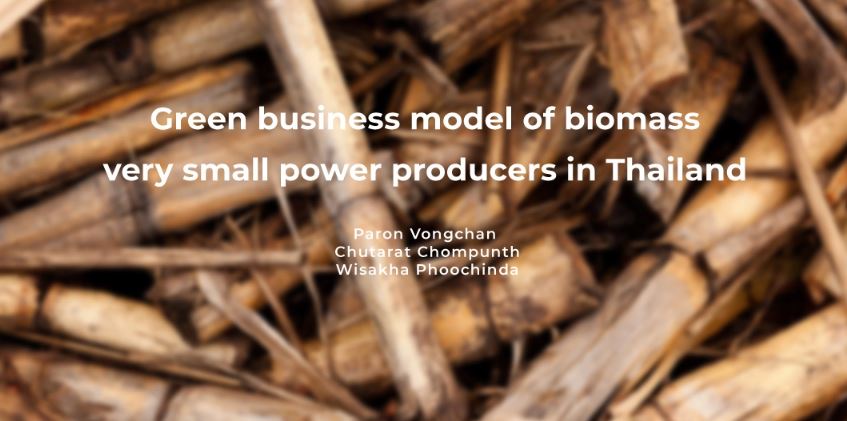Green business model of biomass very small power producers in Thailand
- Details
- SDGS - Research

Green business model of biomass very small power producers in Thailand
Professor Dr. Wisakha Phoochinda (School of Environmental Development Administration, National Institute of Development Administration), Paron Vongchan, Chutarat Chompunth
Abstract
Electricity from biomass energy business in Thailand can be produced from agricultural waste in large quantity. However, without proper management, electricity production from biomass, specifically biomass very small power plants located in communities across the country, may cause pollution and health threats impacting the environment, public health, and conflict from the pollution-affected communities around the biomass power plants.
This research aimed to construct Green Business Model for electricity production using biomass for Biomass Very Small Power Producers in Thailand by applying the Sustainability Balanced Scorecard and to evaluate the model by interviewing experts and stakeholders of biomass electricity production. The study showed that the concept of green business model of Biomass Very Small Power Producers consisted of four key aspects namely 1) Stakeholders perspective including business entrepreneurs, feedstock producers/suppliers, feedstock transport operators, community, government, and non-governmental organizations 2) Sustainability management perspective including economic management, social management, and environmental management 3) Effectiveness perspective including Social Return on Investment and 4) Learning & growth perspective including training/learning and innovation/technology. Biomass Very Small Power Producers could deploy the concept of this model to generate profit coupled with responsibility for the environment and society. Consequently, the green business model of Biomass Very Small Power Producers could benefit the agricultural and community sectors such as energy security, reduction of energy import, support of agricultural waste management, local occupation in community, and revenue generation within communities from agricultural waste. It would lead to sustainable development and benefit all stakeholders in the biomass energy supply chain.
International Journal of GEOMATE, Aug., 2020, Vol.19, Issue 72, pp. 102 -108
อ่านเพิ่มเติมได้ที่ : https://geomatejournal.com/geomate/article